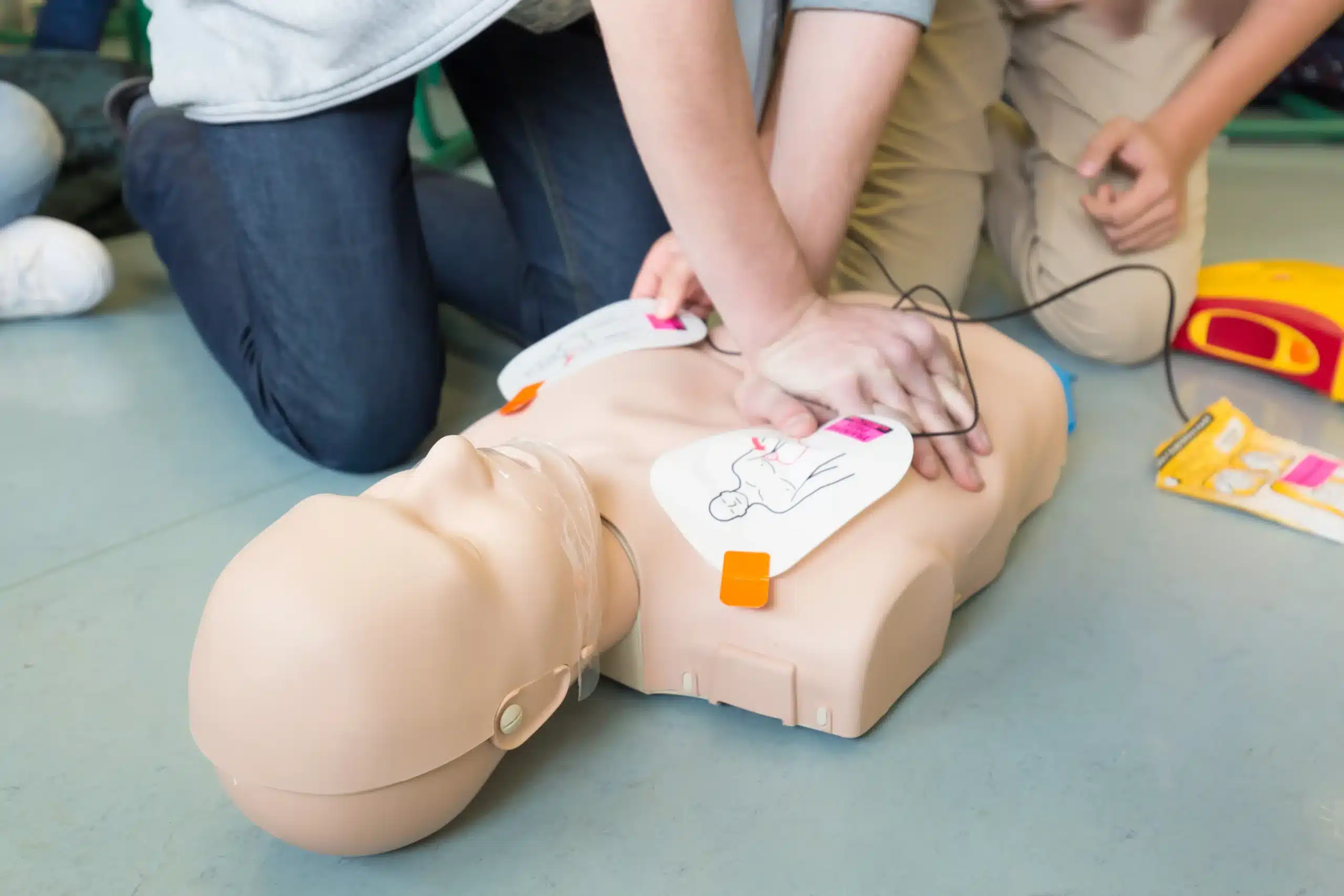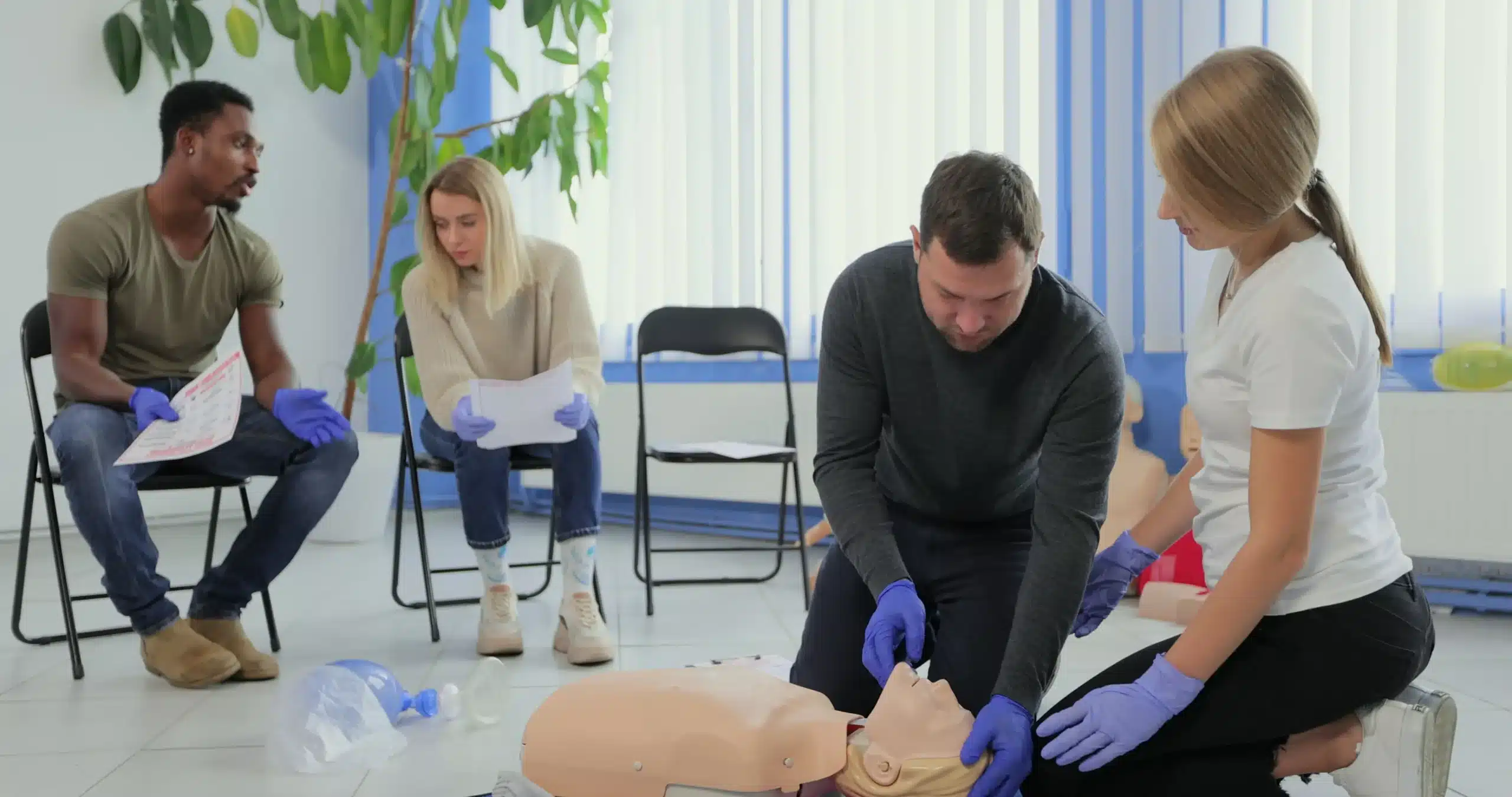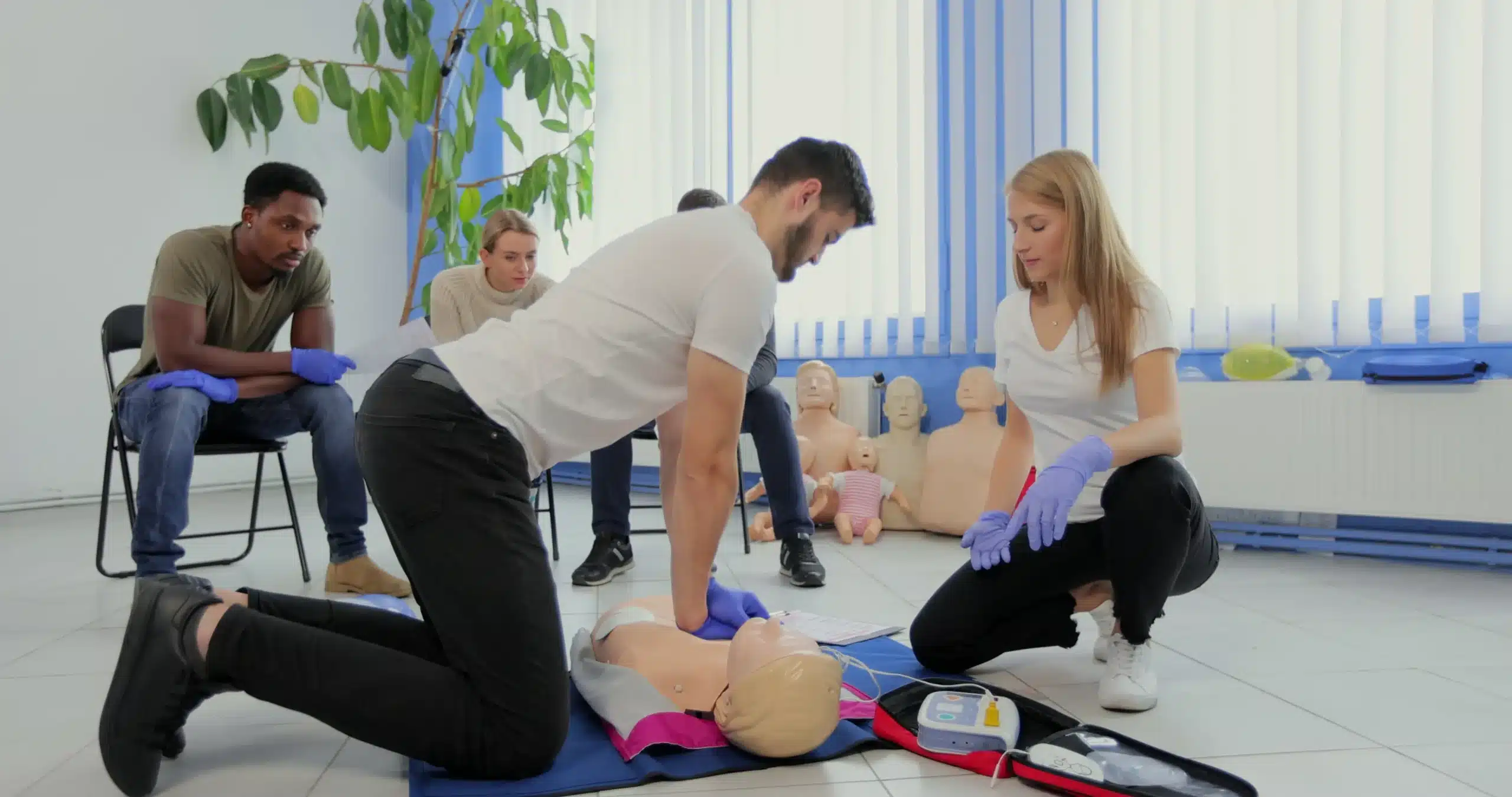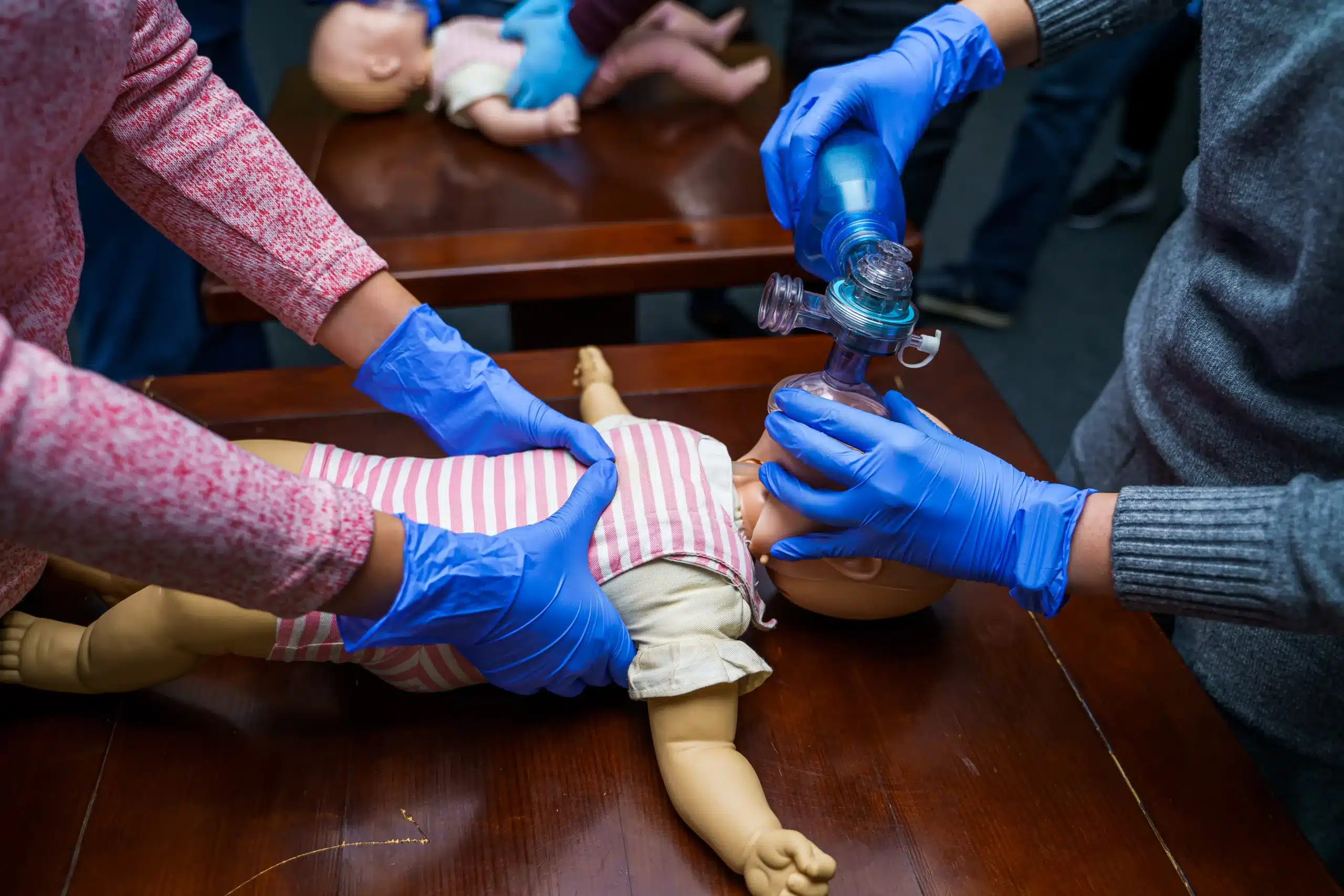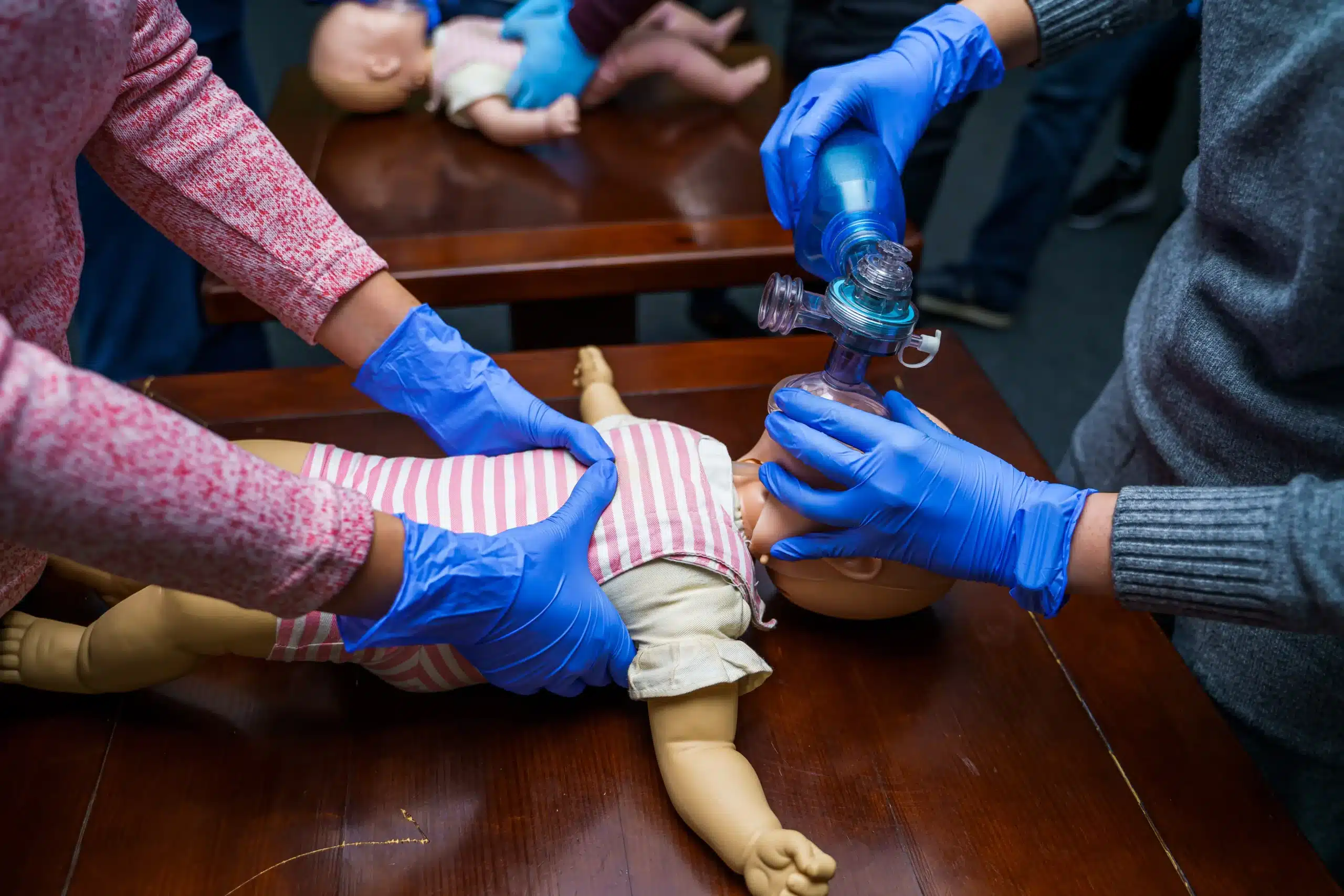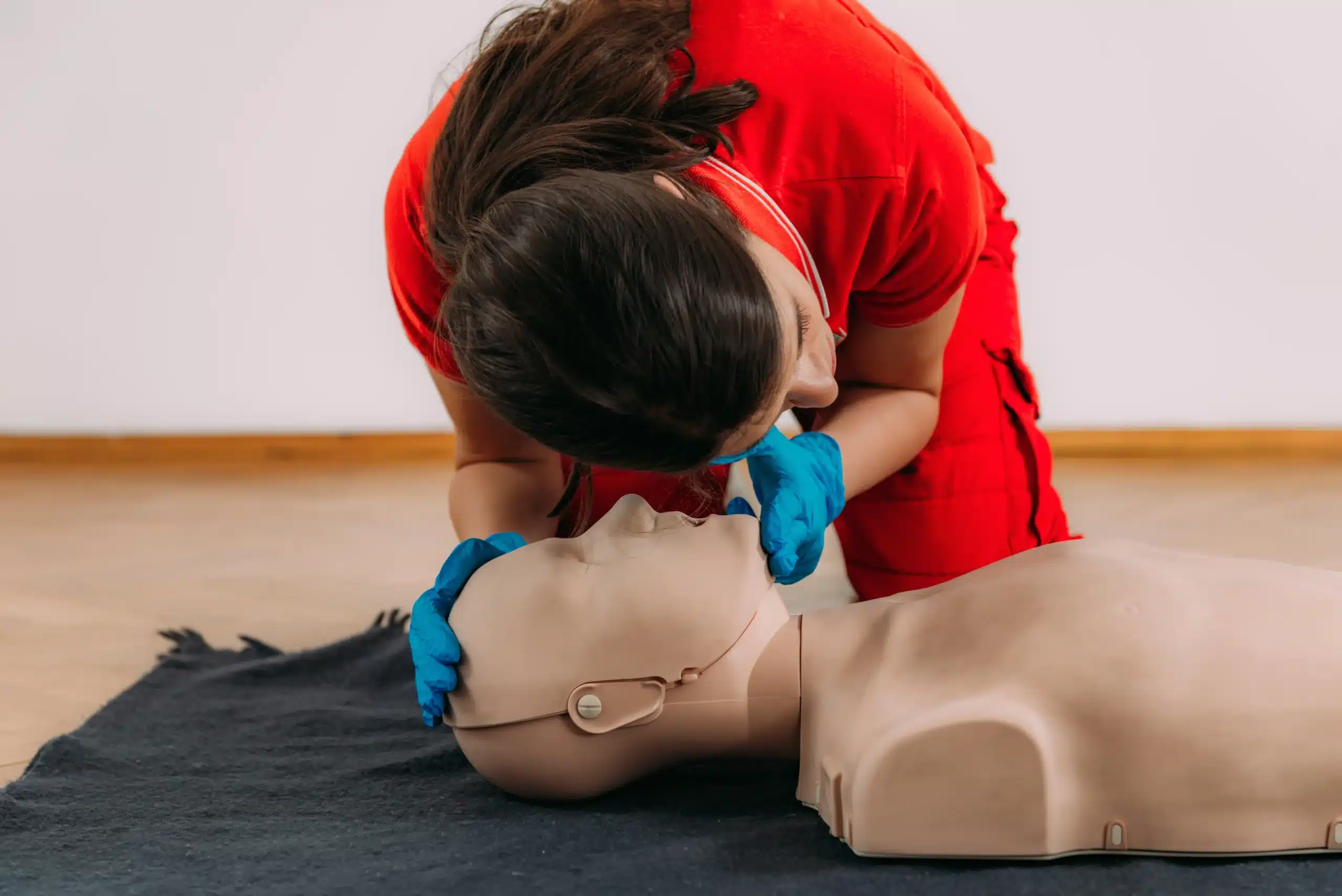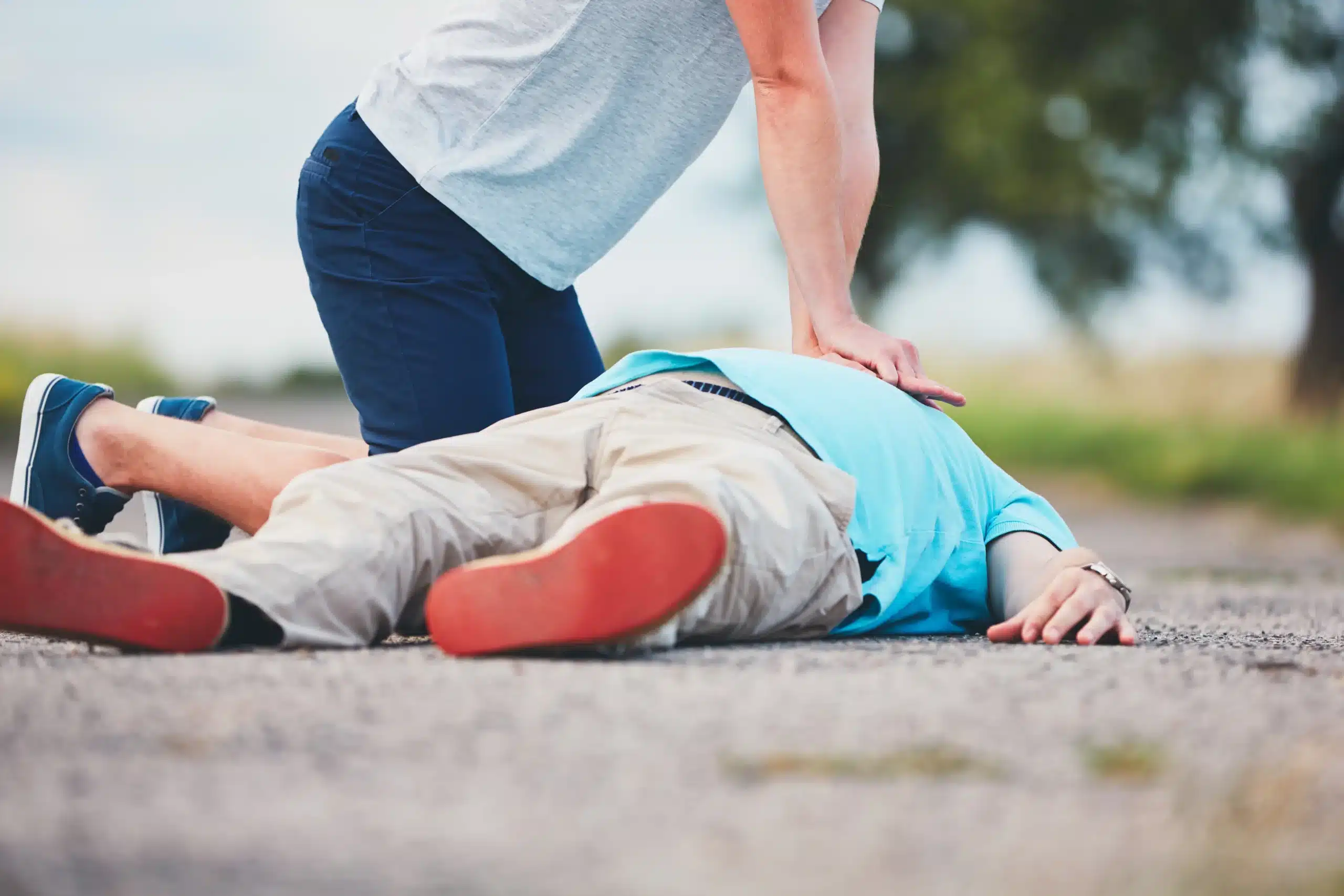Emergencies can happen when we least expect them. Being prepared and knowing how to respond effectively can be the difference between life and death. That’s why getting CPR certified is such a valuable skill. If you’re in Atwater, CA, and searching for information on CPR certification in Atwater, you’ve come to the right place. This guide will walk you through everything you need to know, from understanding the different types of CPR certification to finding the right course and provider for your needs. We’ll also discuss the costs involved, the various course formats available, and the importance of instructor qualifications and accreditation. By the end of this guide, you’ll have a clear understanding of how to get CPR certified in Atwater and be well-equipped to handle emergencies.
Key Takeaways
- CPR certification empowers you to make a difference: Equipping yourself with these life-saving skills can significantly improve outcomes in medical emergencies. Explore the various certification levels, from basic CPR to advanced life support, to find the right fit.
- Find a CPR course that suits your needs and budget: Consider factors like course format (online, in-person, or hybrid), cost, and provider reputation when selecting a course. Look for providers offering group discounts or a low-price guarantee to make training more accessible.
- Stay current with your CPR skills: CPR guidelines and best practices evolve, so commit to renewing your certification and pursuing continuing education opportunities. This ensures you’re always prepared to respond effectively and confidently in a crisis.
What is CPR Certification in Atwater?
CPR certification in Atwater equips you with the life-saving skills to handle emergencies. It signifies that you’ve completed a recognized course and demonstrated proficiency in cardiopulmonary resuscitation, often including AED (automated external defibrillator) training and basic first aid. This training empowers you to respond effectively if someone experiences cardiac arrest, choking, or other medical crises. Holding a CPR certification means you can potentially make a real difference in a critical situation, providing essential support until professional medical help arrives. For those living in and around Atwater, consider getting your CPR certification through a trusted local provider like Merced CPR Classes. They are known for their comprehensive training and commitment to the community, offering a low price guarantee and convenient group discounts.
CPR Certification Courses Available
Choosing the right CPR certification course is the first step. This section clarifies the different types of CPR certification available in Atwater, CA, to help you make an informed decision. Whether you’re a healthcare provider, a concerned parent, or simply want to be prepared for emergencies, there’s a course designed for you.
CPR/AED Certification
This combined CPR/AED certification equips you with the skills to perform CPR and use an AED. AEDs are life-saving devices found in many public places, and knowing how to use one can dramatically increase the chances of survival during cardiac arrest. CPR Test Center offers a convenient online option for this certification, serving Atwater and surrounding areas. You can obtain your CPR/AED/First Aid certificate through them for $24.99. This comprehensive course covers essential life-saving techniques.
First Aid Certification
While distinct from CPR, First Aid certification often complements CPR training. This certification teaches you how to respond to a wide range of medical emergencies, from minor cuts and burns to more serious injuries. Adding First Aid certification to your skillset makes you a valuable asset in any emergency situation. Informational CPR training, without official certification, is generally less expensive than courses leading to certification. You can find CPR and first aid training resources on sites like Thumbtack, which provide cost estimates for various courses.
Basic Life Support (BLS) Certification
For healthcare professionals and those seeking more advanced training, BLS certification is essential. This course covers more in-depth life-saving techniques, including advanced airway management and team resuscitation. The American Heart Association offers a widely recognized BLS certification course that includes hands-on practice and is often a requirement for many healthcare jobs. This structured course ensures you receive high-quality training that meets industry standards.
CPR Certification Costs
CPR certification costs in Atwater, CA vary based on several factors, including the type of course, the training format (online, in-person, or blended), and the provider. Understanding these factors will help you find a course that fits your budget and learning style. For residents of Merced, Turlock, and Atwater, Merced CPR Classes offers a range of courses with a low-price guarantee.
Course Pricing
The price you pay depends on the level of training you need. Basic CPR/AED/First Aid certification typically starts around $25. More advanced certifications, such as BLS for Healthcare Providers, are usually priced around $35. Merced CPR Classes offers competitive pricing on all its courses, including BLS certification. Check their website for the most up-to-date pricing.
Additional Fees
Beyond the course fee itself, be aware of potential additional costs. Some providers charge extra for certification card printing and mailing, online access to course materials, or administrative fees. These fees can add up, so factor them into your budget when comparing courses. Merced CPR Classes maintains transparent pricing, so you’ll know exactly what to expect. Review their low-price guarantee for more information.
Discounts
If you’re training a group, look for discounts. Many CPR training providers, including Merced CPR Classes, offer reduced rates for group bookings. This can be a smart way to save money if you’re an employer training staff or organizing a community training event. Check out their group discount options to learn more.
Course Formats & Duration
CPR certification courses come in various formats to suit different learning styles and schedules. Let’s explore the most common options: online, in-person, and hybrid.
Online Learning
Online CPR training offers unmatched flexibility. Learn at your own pace, whenever and wherever you want. This format is great for busy schedules or those who prefer self-directed learning. Online courses typically include video instruction, interactive exercises, and quizzes to ensure you understand the material. While often less expensive than in-person classes, double-check that the online certification meets your specific requirements.
In-Person Training
In-person CPR classes provide hands-on learning with a certified instructor. This allows for direct feedback, personalized instruction, and the chance to practice skills on mannequins in a realistic environment. While in-person training may cost more, the practical experience and instructor interaction can be invaluable for building confidence and competence. If you thrive in a traditional classroom and value hands-on practice, in-person training might be your best bet. Merced CPR Classes offers group discounts for in-person training, making it more affordable for groups. Check out our low price guarantee.
Hybrid Learning
Hybrid CPR certification combines online convenience with the practical application of in-person skills sessions. Complete the theoretical coursework online at your own pace, then attend a shorter in-person session to practice your skills and get instructor feedback. Hybrid learning balances flexibility and hands-on experience, making it a popular option. Check with your chosen provider to see if they offer this format and if it works for you. Prepare for your course by reviewing the course preparation page on our website.
Instructor Qualifications & Accreditation
Choosing the right CPR certification course is a big decision. You want to make sure you’re learning from qualified instructors and that the certification you receive meets recognized standards. This section breaks down what to look for in instructor credentials and program accreditation in Atwater.
Instructor Credentials
It’s important to know your instructor’s qualifications. Experienced instructors can effectively demonstrate techniques and answer your questions thoroughly. Look for instructors who are licensed healthcare providers, such as EMTs or paramedics. Many organizations, like the American Red Cross, also have specific requirements for their CPR instructors, often including equivalent experience and certifications. This ensures a high standard of instruction across all their courses.
Accreditation
Accreditation is another key factor. A program’s accreditation validates its quality and adherence to industry best practices. Organizations like the American Heart Association and the eCPRVerify National Registry offer accreditation for CPR training programs. Check if the program you’re considering is accredited by a reputable organization. This ensures the training aligns with the latest guidelines and recommendations for CPR. Accredited programs often provide certifications that are widely accepted by employers and other organizations.
Benefits of CPR Certification
Getting CPR certified offers several advantages, from increasing your job prospects to preparing you for real-life emergencies. It’s a valuable investment in yourself and your community.
Employability
CPR certification can give you an edge in the job market. Many professions, from healthcare and childcare to education and fitness, either require or highly recommend CPR training. Even if it’s not mandatory, listing this skill on your resume shows potential employers that you’re proactive and equipped to handle emergencies. While you don’t technically need certification to perform CPR, completing a formal course ensures you’re properly trained and can use the technique effectively.
Emergency Preparedness
CPR certification equips you with the skills and knowledge to respond effectively in a medical crisis. Understanding how to assess a situation, perform chest compressions, and provide rescue breaths can make a life-saving difference while waiting for professional medical help. Learning about common CPR myths through training builds confidence and empowers you to act quickly and decisively when every second counts. This preparedness can bring peace of mind, knowing you have the tools to assist in a critical situation.
Confidence & Peace of Mind
Knowing you can potentially save a life brings confidence and peace of mind. Hands-on CPR classes with training mannequins allow you to practice proper techniques and build muscle memory. This practical experience is invaluable and difficult to replicate through online-only training. The immersive experience of in-person training builds confidence to apply your skills in a real emergency. This confidence extends beyond the classroom, helping you feel prepared and capable in various situations.
Top CPR Certification Providers in Atwater
Finding the right CPR certification provider is an important step. Here are a few reputable options in and around Atwater:
Merced CPR Classes
Merced CPR Classes offers a range of American Heart Association certifications, including BLS, ACLS, PALS, and First Aid. They’re known for their commitment to customer service and offer a low price guarantee. Their two-hour CPR and AED course is an accessible option for those seeking basic life support skills. They also offer group discounts, making it a cost-effective choice for families, businesses, or community groups. Visit their website for the latest course schedules and pricing.
CPR Test Center
If you need certification quickly, CPR Test Center might be a good fit. They provide a streamlined online certification process for CPR/AED/First Aid and BLS for Healthcare Providers. You can explore their certification options and pricing on their website.
American Red Cross
The American Red Cross is a trusted name in emergency preparedness and offers various CPR certification courses. They offer hands-on training and flexible scheduling, with classes often available at convenient locations and times. Check their website for upcoming courses near you.
American Heart Association
The American Heart Association sets the standard for resuscitation science and provides comprehensive training materials and courses. Their programs cater to a wide audience, from healthcare professionals to the general public. Explore their course catalog to find a course that meets your specific needs, from basic CPR to advanced cardiovascular care.
Enroll in a CPR Certification Course
Getting CPR certified is a straightforward process. With options for every learning style and budget, you can find the perfect course to meet your needs. This section breaks down the steps to get you started.
Choose the Right Course
The first step is deciding which type of course best fits your lifestyle and learning preferences. Online CPR training offers flexibility, allowing you to learn at your own pace and on your own schedule. This is a great option if you’re juggling a busy schedule or prefer self-directed learning. If you value hands-on instruction and learn best in a classroom setting, an in-person CPR class might be a better fit. In-person training provides real-time feedback from instructors and the opportunity to practice your skills on mannequins. Consider which learning environment will set you up for success and make the experience more enjoyable.
Register for a Course
Once you’ve chosen your preferred course format, the next step is registration. Merced CPR Classes offers online registration through their website. This typically involves selecting your desired course, choosing a date and time (for in-person classes), and providing your contact information. You’ll also likely create an account to track your progress and access course materials. Some providers, like CPR Test Center, may require payment during registration. Review the registration process and any associated fees before enrolling.
Prepare for Your Course
Whether you’re taking an online or in-person course, a little preparation is helpful. For in-person courses, review any pre-course materials your instructor provides. This might include a student handbook or information about what to expect during class. Arrive on time and dress comfortably for hands-on practice. For online courses, ensure you have a reliable internet connection and a quiet space to focus. Familiarize yourself with the online platform and any required software. Check out the course preparation page on the Merced CPR Classes website for helpful tips and resources. Regardless of the format, taking some time to prepare beforehand will help you get the most out of your CPR certification course.
Maintain Your CPR Certification
Keeping your CPR skills sharp is essential for responding effectively in emergencies. This section covers how to maintain your certification and stay up-to-date with the latest life-saving techniques.
Renewal Requirements
CPR certifications, like those offered by the American Heart Association, are typically valid for two years. To maintain your credentials and ensure your skills are current, you’ll need to renew your certification before it expires. After completing a CPR course, you’ll receive a physical CPR card in the mail, often with a digital version as well. Keep track of your card’s expiration date and give yourself plenty of time to recertify. Check with your certifying organization or training center, such as Merced CPR Classes, for their specific renewal process.
Continuing Education
Even if your certification isn’t up for renewal yet, continuing education is important for staying informed about the latest CPR guidelines and best practices. Refresher courses and additional training can boost your confidence and keep your skills sharp. Online renewal courses offer a flexible way to review key concepts, while in-person classes provide hands-on practice and personalized feedback. Some organizations offer hybrid learning, combining online coursework with in-person skills sessions. Explore the continuing education options available through providers like Merced CPR Classes to find what works best for you. Staying proactive with your CPR education will ensure you’re always ready to help in a crisis.
Common CPR Certification Misconceptions
It’s easy to get confused about CPR requirements, especially with so much information (and misinformation) online. Let’s clear up some common misconceptions about CPR certification.
CPR Requirements
One of the biggest misunderstandings about CPR is that you must be certified to perform it. This simply isn’t true. While a CPR certification course provides valuable training and a standardized approach, you are not legally obligated to have certification to help someone in need. Good Samaritan laws protect those who offer assistance in emergencies. However, proper training ensures you can provide effective and safe assistance, which is why we always recommend getting certified. Learn more about our low price guarantee.
CPR Effectiveness
Movies and TV shows often portray CPR as a guaranteed lifesaver. Unfortunately, this isn’t always the case. CPR is a powerful tool, but it doesn’t always revive someone in cardiac arrest. Understanding its limitations is important. CPR helps circulate oxygenated blood to vital organs, buying precious time until professional medical help arrives. It significantly increases the chances of survival, even if it doesn’t result in immediate consciousness. Explore our American Heart Association BLS course to learn more.
CPR Safety
Many people hesitate to perform CPR due to fears about doing it wrong and causing harm. It’s natural to feel apprehensive, but these fears often outweigh the potential benefits of intervening. High-quality CPR training addresses these concerns by teaching you the correct techniques and building your confidence. While there’s always a small risk of minor injury like a fractured rib, especially during compressions on older adults, not performing CPR carries a much greater risk to the person’s life. Learning CPR empowers you to act quickly and effectively in an emergency, potentially saving a life. Consider our discount group classes for a more affordable option.
Related Articles
- First Aid in Atwater: Your Guide to Local Training – Merced CPR Classes
- HeartCode BLS Atwater: Your Guide to Online CPR Training – Merced CPR Classes
- CPR Certification in Merced: Your Complete Guide – Merced CPR Classes
- Group CPR Discount Classes in Merced, CA – Discounts Available
- Online PALS Classes in Turlock: Your Guide – Merced CPR Classes
Frequently Asked Questions
What’s the difference between CPR, BLS, and First Aid certification? CPR focuses specifically on life-saving techniques for cardiac arrest and choking. BLS (Basic Life Support) builds upon CPR, adding advanced airway management and other skills for healthcare providers. First Aid covers a broader range of medical emergencies, from minor injuries to more serious situations. They often complement each other, creating a well-rounded skillset for responding to various emergencies.
How much does CPR certification cost in Atwater? CPR certification costs vary depending on the type of course and the training provider. Basic CPR/AED/First Aid certification can start around $25, while more advanced certifications like BLS for Healthcare Providers are typically around $35. Look for providers like Merced CPR Classes who offer a low-price guarantee and group discounts. Also, be mindful of potential additional fees for things like certification card printing or online materials.
What if my CPR certification expires? CPR certifications are usually valid for two years. You’ll need to take a recertification course to renew your credentials and stay current with the latest guidelines. Many providers offer refresher courses or online renewal options. Keep track of your certification expiration date and plan to renew in advance.
Is online CPR certification accepted? Yes, many employers and organizations accept online CPR certifications, especially for non-healthcare roles. However, it’s always best to double-check with your employer or the organization requiring certification to ensure they accept online training. Look for online programs accredited by reputable organizations like the American Heart Association or the Red Cross.
I’m nervous about performing CPR. What if I do something wrong? It’s normal to feel apprehensive about performing CPR, but remember that any attempt to help is better than none. High-quality CPR training will teach you the proper techniques and build your confidence. Good Samaritan laws also protect those who provide assistance in good faith during emergencies. Focus on the potential to save a life and trust the skills you’ve learned.
